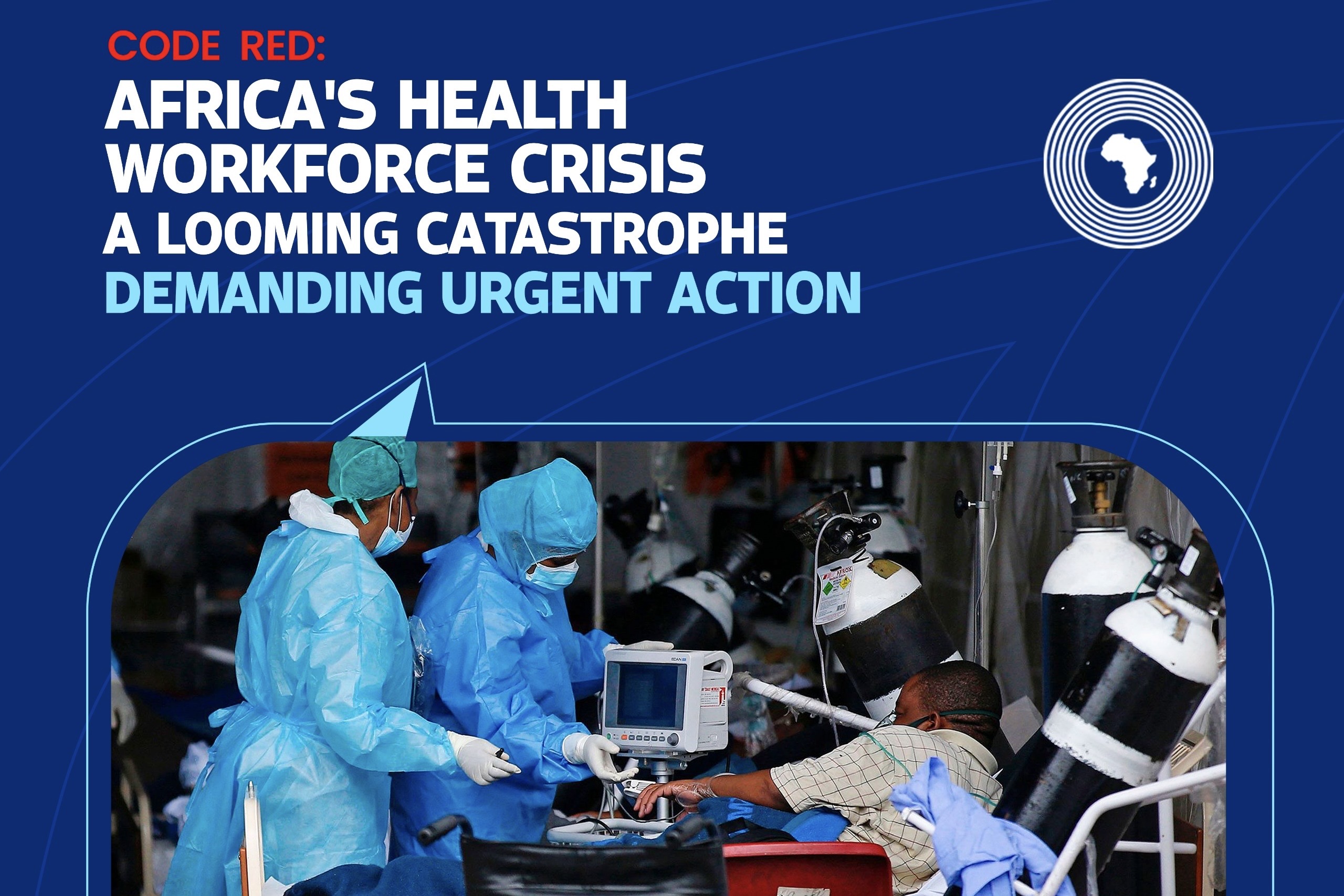Code Red: Africa’s Health Workforce Crisis – A Looming Catastrophe Demanding Urgent Action
By Iheanyichukwu Samuel Onwubiko
Africa stands on the precipice of a healthcare catastrophe. The shortage of medical professionals is reaching a critical point, threatening to unravel years of progress and leaving millions vulnerable. This isn’t just a statistic; it’s a crisis that reverberates through communities, leaving hospitals understaffed, clinics shuttered, and families desperate.
Unmasking the Crisis
The numbers paint a grim picture. The World Health Organization (WHO) forecasts a staggering shortfall of 10 million healthcare workers globally by 2030, with low- and middle-income countries (LMICs) bearing the brunt of this crisis. Sub-Saharan Africa, a region grappling with 25% of the world’s disease burden, is particularly vulnerable, possessing a mere 3% of the global health workforce.
This stark imbalance has far-reaching consequences. Millions of Africans face limited access to essential healthcare services, while existing healthcare professionals are stretched thin, battling overwhelming workloads and burnout. The result is a tragic reality: mothers dying in childbirth due to the absence of skilled midwives, children succumbing to preventable illnesses, and chronic conditions spiraling out of control. The WHO’s estimate of a 2.3 million healthcare worker deficit in Africa underscores the urgency of this crisis.
But this crisis isn’t simply about numbers. It’s about the brain drain that sees Africa’s brightest medical minds lured away by promises of better pay and working conditions abroad. It’s about the chronic underfunding of healthcare systems, leaving hospitals ill-equipped and doctors overworked. It’s about the lack of investment in training and education, creating a bottleneck that prevents the next generation of healthcare heroes from rising.
The Ripple Effects: Beyond the Hospital Walls
The devastating impact of Africa’s healthcare worker shortage reverberates far beyond hospital walls, creating a ripple effect that undermines the very fabric of society. This crisis isn’t confined to individual tragedies; it’s a systemic failure that jeopardizes progress on all fronts.
When communities lack access to even basic healthcare, the consequences are profound. Economies falter as workers fall ill, productivity dwindles, and families are driven into poverty by the burden of medical expenses. The social fabric tears as trust in institutions crumbles, leaving communities vulnerable and disillusioned.
This isn’t merely a healthcare crisis; it’s a multi-faceted catastrophe. It’s a development crisis, stifling economic growth and hindering social progress. It’s a humanitarian crisis, denying millions their fundamental right to health. And it’s a crisis of conscience, a stark reminder of our collective failure to protect the most vulnerable among us.
We cannot remain passive observers as Africa hemorrhages its most precious resource: its people. This is a clarion call for urgent action, a demand for bold solutions that will not only address the immediate shortage of healthcare workers but also build a resilient and equitable healthcare system for generations to come.
Bold Solutions for a Desperate Hour
The time for half-measures is over. Africa’s healthcare system is bleeding talent, and the consequences are devastating. But amidst this crisis lies an opportunity for transformative change. It’s time to implement bold, innovative solutions that not only address the immediate shortage of healthcare workers but also lay the foundation for a thriving, resilient healthcare system.
- Investing in Home-grown Talent
Imagine a future where every African village has a skilled nurse, every district hospital a team of dedicated doctors, and every child access to quality healthcare. This vision starts with investing in our own people. We must massively expand medical schools and nursing programs, not just in urban centers but in rural areas as well. Let’s create scholarships and loan forgiveness programs that incentivize bright young minds to choose healthcare careers. And let’s invest in continuous professional development to nurture their skills and keep them engaged.
- Creating a Haven for Healthcare Heroes
The brain drain isn’t inevitable. We can create an environment where healthcare workers choose to stay and serve their communities. This means offering competitive salaries, safe working conditions, and opportunities for career advancement. It means investing in leadership development programs that empower healthcare workers to become changemakers. It means recognizing and celebrating their contributions, fostering a culture of respect and appreciation.
- Reimagining Health Systems
A thriving healthcare system needs more than just doctors and nurses. It needs strong infrastructure, modern equipment, and reliable supply chains. We must invest in hospitals, clinics, and laboratories, ensuring that they are equipped to deliver quality care. We must streamline management practices, reduce bureaucracy, and ensure that every African, regardless of their socioeconomic status, can access the care they need.
- Embracing the Digital Revolution
Technology is a powerful tool for expanding access to healthcare. Telemedicine can connect patients in remote villages with specialists in urban centers. Mobile health apps can empower individuals to manage their own health and access vital information. Drone delivery of medical supplies can reach communities cut off by floods or conflict. Let’s embrace these innovations and use them to bridge the gap between healthcare providers and the people they serve.
- Partnering for Progress
The healthcare workforce crisis is a complex challenge that requires a multi-faceted solution. Governments, international organizations, NGOs, and the private sector must come together to form a united front. We need coordinated action, shared resources, and a commitment to long-term sustainability. By working together, we can create a healthcare system that is not just resilient but thriving, a system that empowers healthcare workers and ensures that every African has access to the quality care they deserve.
The Stakes Are High
The cost of inaction is too high to bear. We are talking about the lives of millions of Africans, the future of our continent, and our shared humanity. The time for excuses is over. The time for action is now. Together, we can turn the tide of this crisis and ensure that every African has access to the healthcare they deserve. The future of our continent depends on it.








